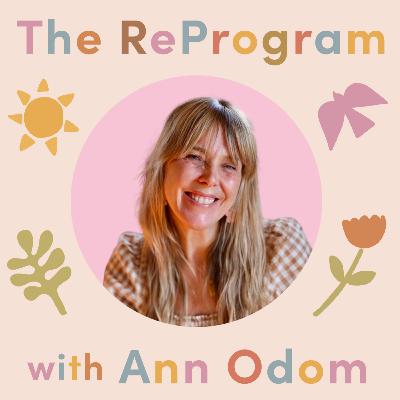Tech Pep Talk with Erin Walsh
Description
In today’s episode, I sit down with the brilliant and grounding Erin Walsh (author of "It's Their World Teens, Screens and the Science of Adolescence" and co-founder of the Spark and Stitch Institute) to talk about something every parent I know is secretly panicking about: raising humans in a digital world that evolves faster than our nervous systems can blink.
Erin and I go way beyond the usual “screen-time limits” conversation. We get into the real, nuanced, evidence-based, actually-helpful stuff—like how our kids’ tech behaviors are so often a mirror of our own emotional regulation, why shared family tech rituals matter more than the perfect set of rules, and what boys are learning (or not learning) about their emotions from the online spaces they inhabit.
We talk about how the digital world is designed to hijack attention, how masculinity is being shaped in comment sections, and why secure attachment is still the number-one “parental control” we have access to. We explore the importance of boredom (yes, boredom—the thing our kids act like is fatal), co-regulation, and crowding out screens not with shame but with shared experiences that actually feel good to everyone.
This conversation is honest, compassionate, and genuinely relieving. It names what so many of us feel but don’t say out loud: it’s hard to raise kids right now. The landscape is unfamiliar, the stakes feel high, and none of us grew up with the tools we’re expected to have. Erin offers practical, grounded wisdom—and together, we remind you that you don’t have to navigate any of this alone, and you don’t have to do it perfectly for your kids to thrive.
Takeaways
The digital landscape poses unique and unprecedented challenges for families.
Understanding how screen time affects development helps us guide—not control—our kids.
Secure attachment is the most powerful buffer against tech-related overwhelm.
Parents play an essential role in helping children navigate online content and culture.
Boys often learn emotional expression from peers and online role models—many of whom are not emotionally mature.
Boredom is not a crisis; it’s a crucible for creativity and regulation.
Shared family tech experiences build connection and restore balance.
Emotional regulation means feeling feelings without causing harm to self or others.
Healthy media habits require replacement strategies—not just restrictions.
We need community, patience, and open dialogue to raise emotionally resilient kids in a digital age.
Enjoy the episode, and I highly recommend Erin's book and work! https://sparkandstitchinstitute.com/about/erin-walsh/





